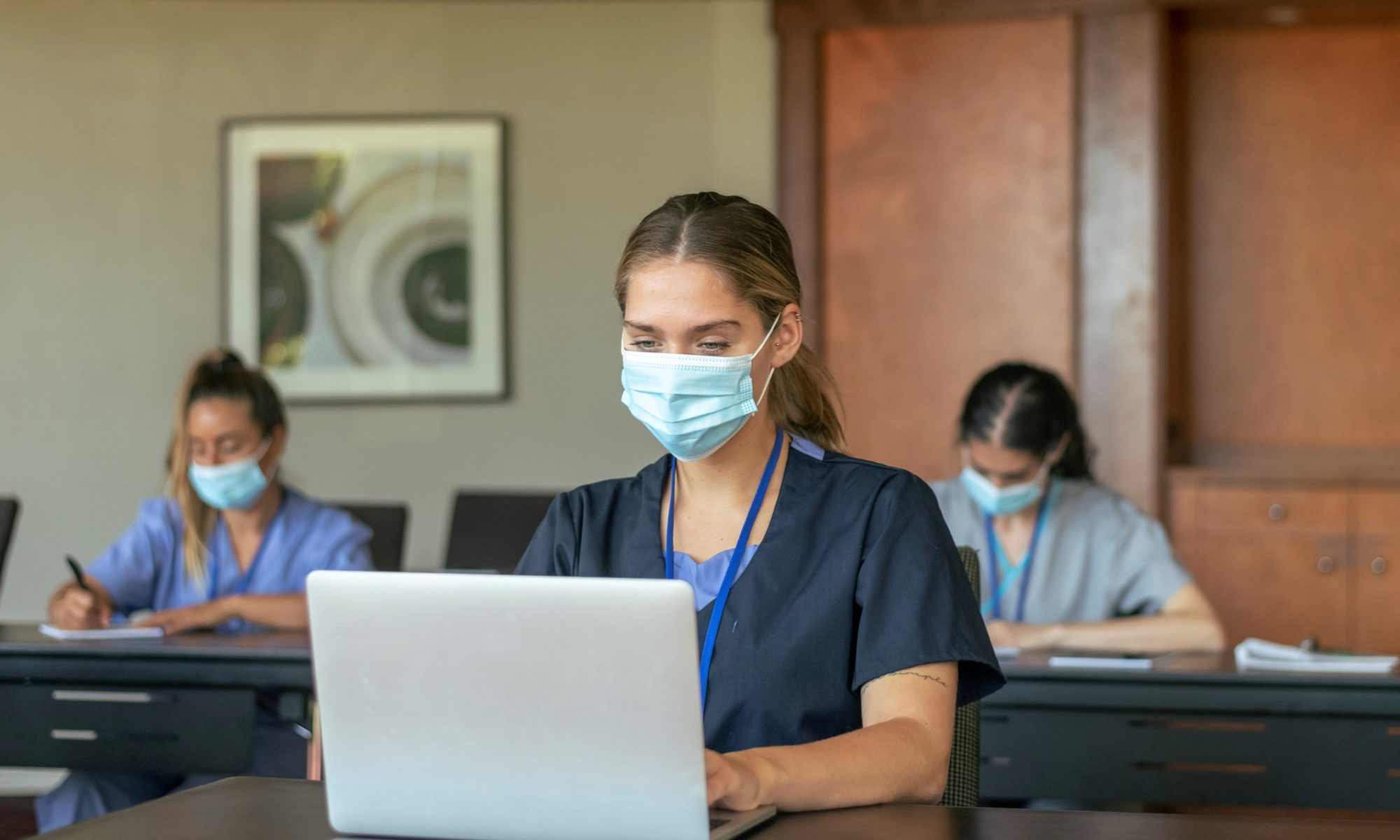Remote learning bridges gap to improved patient safety

Infection prevention training keeps staff on track, accomodates social distancing
By Medline Newsroom Staff | March 16, 2021
Hospitals have long wrestled with how to improve patient safety, but the pandemic has added additional pressure and new challenges.
This year during Patient Safety Awareness Week, it’s a fitting time to consider how hospitals and other healthcare settings are redesigning staff education, specifically around infection prevention.
Old problems with new twists
One promising and simple COVID-19 treatment to emerge is proning. Experts say this process of turning the patient from their back onto their abdomen with precise, safe motions can help COVID-19 patients with their breathing.1
While this technique is exciting from a treatment perspective, it can present multiple challenges to frontline clinicians. Large or heavy patients can be difficult to move, leading to a risk of caregiver injury. Not to mention that patients with a central line or catheter must be handled carefully to avoid severing or contaminating those connection points. Without sufficient training, moving patients for proning purposes has the potential to create more issues than it solves.
Programs that support safety
To assist hospitals and other healthcare settings safety pitfalls, Medline has been working hard to convert its suite of education and consultation to work remotely.
The Uplift program now makes its comprehensive, multifaceted patient handling solution available remotely to support caregivers so they can protect their patients and themselves. For the ERASE BSI program designed to address blood stream infections, Medline transitioned its training online, with the ability to tailor programming to individual client needs. If a client requests a competitor’s device be included in a BSI kit, Medline not only includes the device but coordinates to co-lead education around the kit with that competitor.
In the case of Urological Solution, Medline recently redesigned its flagship infection prevention solution in order to maximize its impact on patient safety. Clinicians receive 24 months of education on urology and preventing these costly and dangerous infections. Periodic check-ins help ensure that content is sinking in and driving sustainable improvements.
“Given how much caregivers are being asked to do during COVID-19, on-demand remote education is more important than ever,” said Angela Zuick, director of clinical services at Medline. “Remote education lets administrators and clinicians improve their knowledge. It also standardizes infection prevention procedures in a socially distanced manner which helps keep everyone safe.”
Check out Medline’s library of webinars and infection prevention-related remote learning videos
- JAMA Intern Med. 2020;180(11):1537-1539. doi:10.1001/jamainternmed.2020.3030
Medline Newsroom Staff
Medline Newsroom Staff
Medline's newsroom staff researches and reports on the latest news and trends in healthcare.

